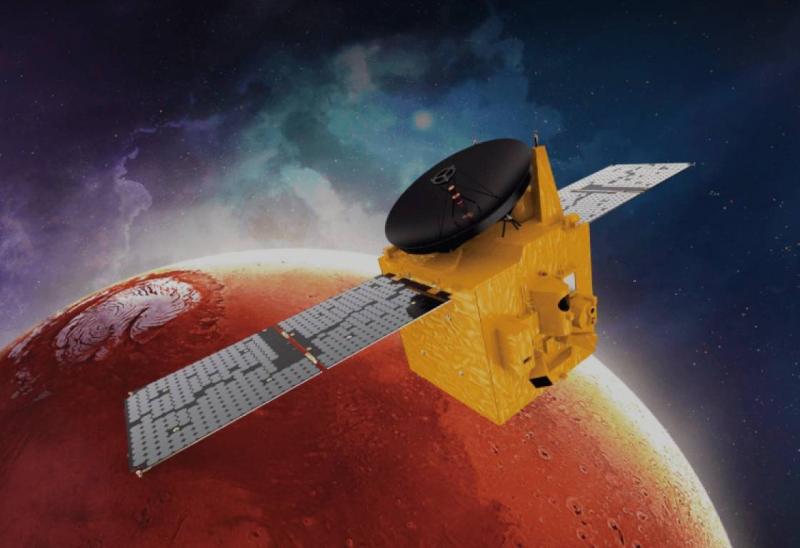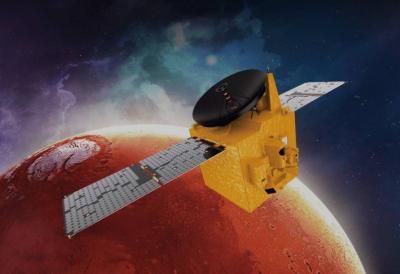Fifty percent of manned missions that attempted to enter Mars' orbit have failed. Will the Emirati probe succeed? The "Hope Probe," the first Arab probe, is set to begin its journey beyond Earth’s orbit to explore the red planet in about 10 hours. It will slow its speed from 121,000 kilometers per hour to just 18,000 kilometers per hour over 27 minutes known as the "27 minutes of darkness."
This will be achieved using its six retro-rocket engines equipped for the probe. The "Hope Probe," a monumental scientific project with unprecedented goals in human history, will autonomously handle all challenges during these dark minutes, as communication with the control center in Al Khawaneej, Dubai, will be delayed.
Should there be any technical malfunctions in more than two of the retro-rocket engines used to slow down the probe, it could lose its way in deep space or crash, and in either case, it cannot be recovered.
The critical moment will occur on Tuesday when the ground control team in Al Khawaneej manages to receive signals from the probe after it clears the 27 dark minutes, signaling the success of the mission at this important stage.
It is worth mentioning that receiving radio signals from Mars to Earth takes about 20 minutes. To overcome this challenge, the "Hope Probe" has been designed to complete the capture process automatically without needing control from the ground station.
The ground control team expects to receive the first signal from the probe at the ground station as soon as it reaches Earth from the fastest point. Regarding the possibility of the probe failing to enter orbit, Sheikh Mohammed bin Rashid Al Maktoum stated, "The biggest challenge is entering Mars’ orbit, and even if we do not succeed, we have entered history."




